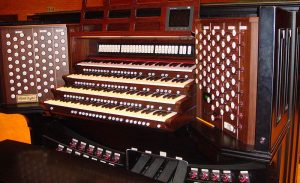Many pastors and administrators in the United States and around the world are formulating responses to the current pandemic. I thought I would offer some of my personal considerations in case they might be helpful.
Pro-Life: The coronavirus affects persons who are weak in more tragic ways. I feel that the response of the Church should consider them in particular.
End of Life Pastoral Care: At its worst, episodes of this virus have precluded funerals and most likely the presence of a priest at the end of life. “Flattening the curve” would enable ministers to reach everyone who needs it and to have at least private funerals for the souls of those who have passed.
The Domestic Church: With the social media literally at our fingertips, pastors and their staffs could easily formulate home “care packages” to enable families to continue their Catholic home mission. It could be a very good Lent, celebrated at home.
Protecting the Triduum: It is 4 weeks until Good Friday, and a serious response now would help us recover our footing in time to celebrate these liturgies as they deserve. Choirs would suffer but could also, at least in theory, practice together using technology.
Communion on the Tongue: Holy Communion need not include contact if both the recipient and minister are careful, and reception on the tongue often involves less contact than reception in the hand.
Sunday Mass: Common sense measures might include dispensation of vulnerable persons and disinfecting pews, as well as omitting the sign of peace.
At the risk of overreacting, it seems to me that in the United States we are generally under-tested for the virus, and the statistics of existent cases may be artificially low.
May I invite all of our readers to pray for those who are making decisions at this time, including our Church and civic leaders, for families, and for those who are dying today.

 Next fall, there will be one beginning scholarship in organ opening up which will provide free lessons and $500 in tuition reduction.
Next fall, there will be one beginning scholarship in organ opening up which will provide free lessons and $500 in tuition reduction.